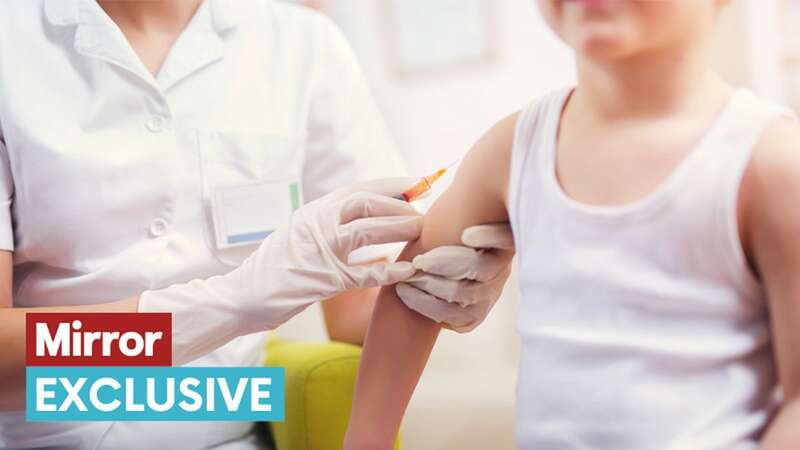
Vaccination against measles, mumps and rubella (MMR) in children is at a 12-year low as anti-vax rhetoric is spreading like wildfire among parents, an expert has said.
The UK Health Security Agency (UKHSA) has raised the alarm over fatal diseases spreading as the annual figures for 2022/23 show just one in 10 children have had their first MMR jab by the age of two. By the age of five, just 84.5 per cent of children have had both doses - the lowest figure since 2010/11. Vaccination programmes across England failed to meet the uptake recommended by the World Health Organization (WHO) - that says, nationally, at least 95% of children should be inoculated.
Professor Stephen Griffin, a leading virologist at Leeds University, said he is "not necessarily shocked but incredibly upset" about the latest figures. He believes the "newfound" rising anti-vax movement is to blame. He fears that the "widely debunked myths" around becoming immune by getting infected are gaining traction.
He said: "People don't understand how immunology works. That's why we have vaccines. These diseases are not a problem nowadays because of the vaccines. And there's a vicious circle of people who think they're not a problem, so why bother with the vaccine? But measles is devastating. It's a nasty disease. It causes horrible neurological complications. Kids died from it. So, the minute you stop using these vaccines to their full effect, you're gonna start seeing outbreaks again."
In July, MPs warned that the UK is at risk of losing its position as a global leader in vaccination without action to address challenges around uptake and bureaucratic processes in setting up clinical trials. There are also fears that the, now widely debunked, 1998 paper which allegedly found that MMR vaccines cause autism is being once again believed. The paper has since been discredited by health experts, retracted from the journal in which it was published, and its primary author, Andrew Wakefield, lost his medical licence.
 Families on alert as baby with 'highly infectious’ disease attends concert
Families on alert as baby with 'highly infectious’ disease attends concert
"Wakefield's been rejuvenated and there's this real disquiet, a real groundswell of anti-establishment feeling that is framed, or certainly associated with the anti-vaccine movement. It's absolute nonsense, but these people actually believe it", Prof Griffin says. "It doesn't seem to matter how much actual factual evidence you present to these people, it's really hard to persuade them otherwise. But I think that that's what's driving this overall increase in hesitancy that's now affecting MMR. It's going to be really upsetting to see when these sorts of diseases come back."
The figures come after a number of councils said unvaccinated children face being forced to self-isolate for 21 days owing to the rapid rise of measles. Authorities in several parts of London and the Home Counties have issued warnings to parents after modelling suggested up to 160,000 cases of the disease could occur in the capital alone. The mumps virus can cause deafness in many people who contract the disease, while measles can lead to complications such as pneumonia and swelling of the brain.
Prof Griffin is keen to point out that there are, of course, some people who do get genuine adverse reactions to some vaccines. However, there is no pathway for so-called vaccine-injured people, meaning they often "find a home" among anti-vaxxers.
Steve Russell, NHS director of vaccinations and screening, said: "The NHS continues to encourage and support parents and carers to ensure their children are up to date with their vaccinations to protect them against becoming seriously unwell from infectious diseases.
"While most children are up to date with their vaccinations, there is more to do, and the NHS is running an MMR catch-up campaign to support more families in coming forward, with targeted outreach work for those identified as at high risk and communities with the lowest uptake.
"Diseases such as measles, mumps and rubella can make children seriously ill, but they are preventable, and millions of vaccination doses are given every year to offer the best protection – so please check your child is up to date with their vaccines and contact your GP surgery to catch up with any missed doses as soon as possible."
Read more similar news:
Comments:
comments powered by Disqus





























